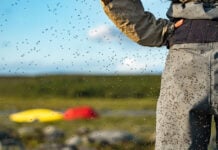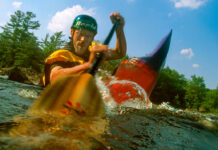“Have I ever written about our ability as humans to forget pain and suffering, remembering only the good times?” I asked editor Kaydi while planning my summer canoe trips and writing this piece to appear in the Paddling Trip Guide. “You know, like, why would anyone ever do another paddling trip?”
We couldn’t remember.
Pain, gain and nostalgia’s clever trick
Friedrich Nietzsche was a 19th-century German philosopher who famously wrote in his book Twilight of the Idols, “Was mich nicht umbringt, macht mich stärker.”
French voyageur Pierre-Esprit Radisson of the Hudson’s Bay Company predated Nietzsche by 200 years. Still, he likely shared a version of the famous aphorism, “Ce qui ne te tue pas te rend plus fort,” as he loaded a 90-pound pack on a newly recruited voyageur heading up Grand Portage, the grueling eight-and-a-half mile slog out of the west end of Lake Superior.
And, at this very moment, 136 years after Nietzsche, a counsellor is watching a camper hysterically swatting blackflies, saying the same thing, “What doesn’t kill us makes us stronger.”
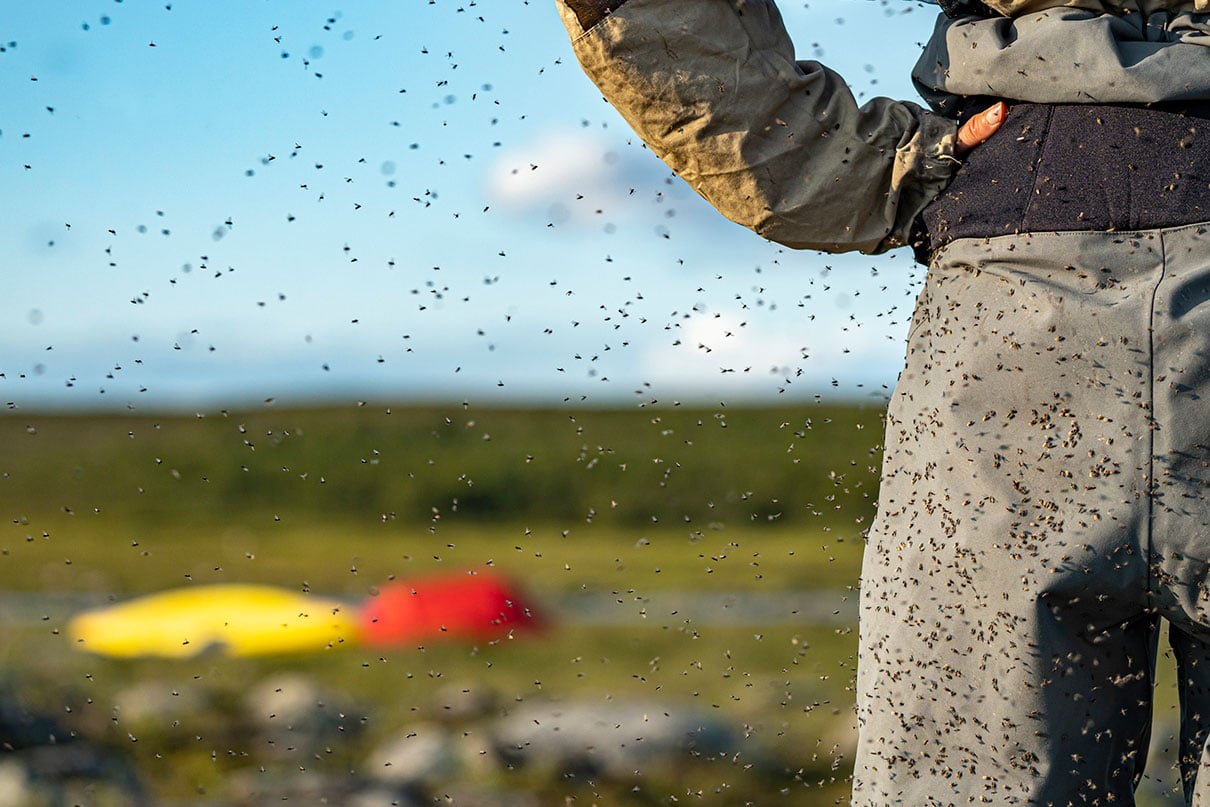
If we made a list of possible dangers, risks and discomforts on any given paddling trip found in our 2024 Paddling Trip Guide, it would read like any liability waiver of things that could kill us or make us stronger, including but not limited to: Overturning or upsetting of canoes or kayaks; entrapment by trees, rocks or equipment; encounters with wild animals; equipment malfunction; storms, lightning, hail and snow; becoming lost or separated; lack of shelter; limited access to and/or delay of medical attention; physical exertion, hypothermia, exhaustion, dehydration or frostbite; and/or mental distress from exposure to any of the above.
And yet we go. Over and over again.
Motivated forgetting theory goes something like this: We forget feelings because we either do not want to remember them or the feelings are too painful and disturbing to recall. So, we push them deep into our unconscious, making them very difficult to retrieve.
Whether days of relentless driving wind, cold and rain are intentionally or unconsciously buried probably doesn’t matter. What matters is when my buddy Paul calls with a window of opportunity to paddle the Spanish River in the bloodsucking heart of bug season, I’m dumb enough to agree. I rationally know June is a bad idea, but I’ve buried the horrific feeling of thousands of blackflies biting my neck.
So, of course, I agree to go.
Looking back through rose-coloured glasses
The phenomenon of remembering the good times more vividly than the bad times can be attributed to a few human psychological phenomena. Positive memories are often associated with strong positive emotions such as love, joy and connection. These feelings make the good times more salient and memorable than negative experiences, which may be associated with feelings of pain, conflict and sadness. I’ll leave you to draw your own links to previous paddling trips.
And with the passage of time, we know the negative aspects fade in intensity while the positive memories become more enduring and cherished—sometimes as quickly as a cheeseburger and beer after the trip. As more time passes, the more nostalgic we become.
When we look back on past adventures, we often focus on the positive memories because they evoke feelings of warmth, comfort and happiness. This is called emotional nostalgia bias. It makes the good times stand out more prominently in our memories. This is why we fondly remember the dining hall despite the food being God-awful.
Krystine Batcho is a psychologist and professor at New York’s Le Moyne College. She regularly contributes to Psychology Today and is a leading expert on the study of nostalgia.
“Nostalgia helps to unite our sense of who we are, our self and our identity over time,” writes Batcho, who believes we are changing constantly in incredible ways. We’re not the same today as we were three years ago, she says. We may not even be who we were at the beginning of our last paddling trip.
“Nostalgia motivates us to remember the best feelings in our lives,” says Batcho. “It helps to unite us to our authentic selves and remind us of who we have been and then compare that to who we feel we are today.”
Basically, this positive, nostalgia-inspired version of ourselves gives us a sense of who we want to be in the future. And this is why we keep doing paddling trips.
What doesn’t kill us makes us stronger.
Scott MacGregor is the founder of Paddling Magazine.
Enjoying the mystical cloud of joy nostalgia brings. | Feature photo: David Jackson



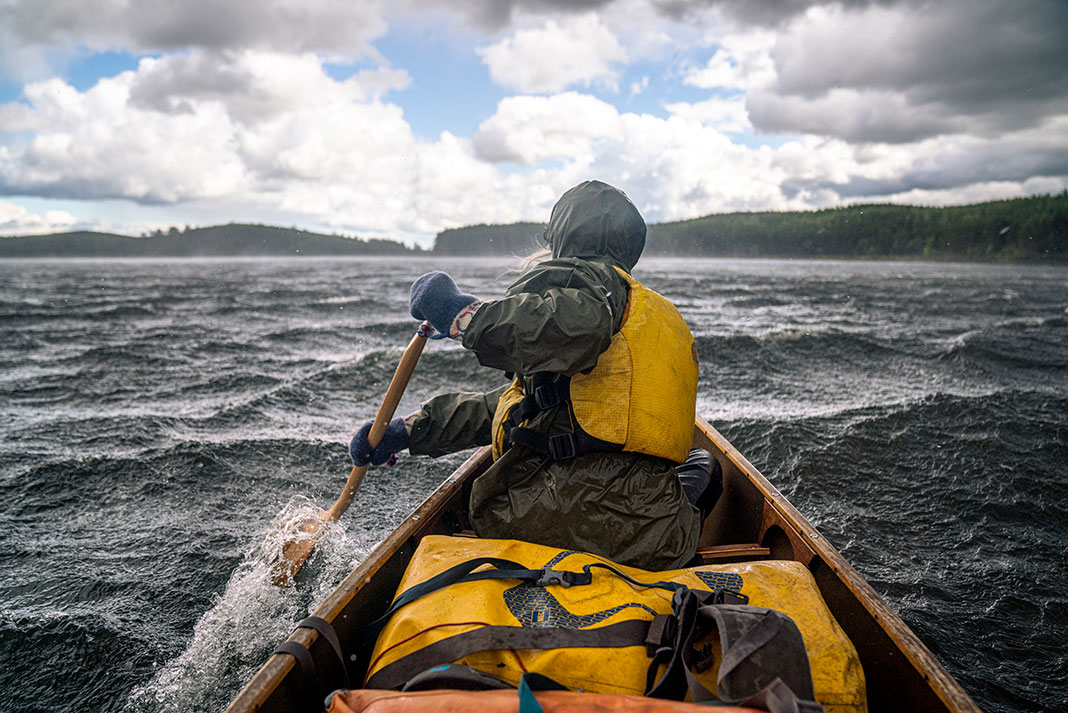
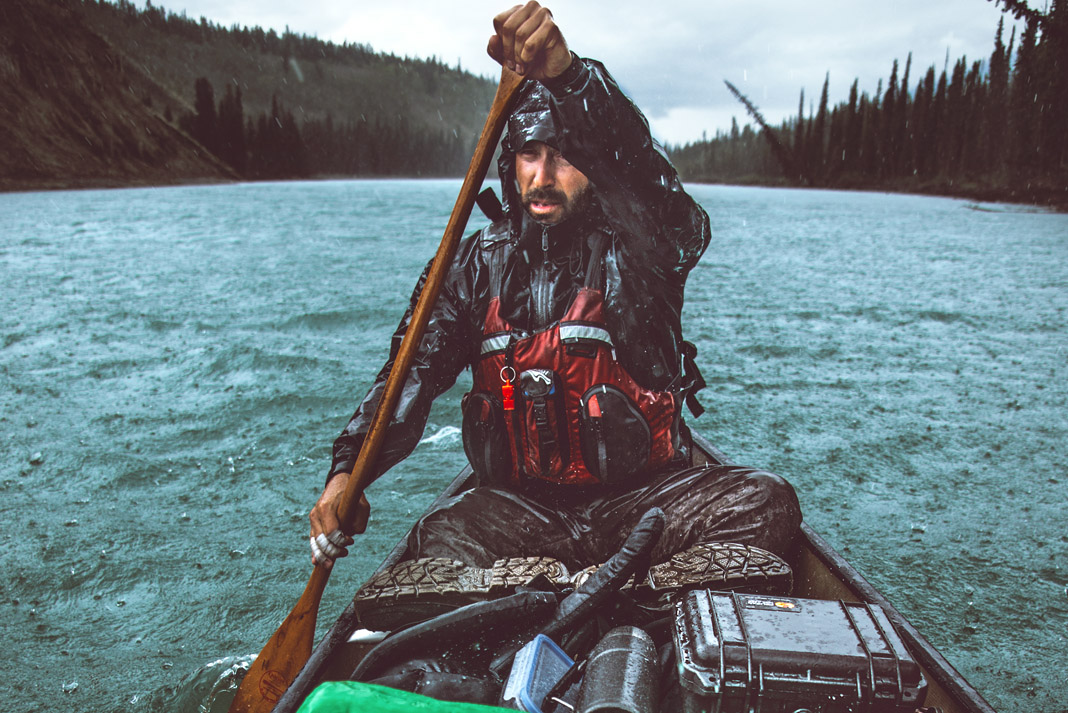
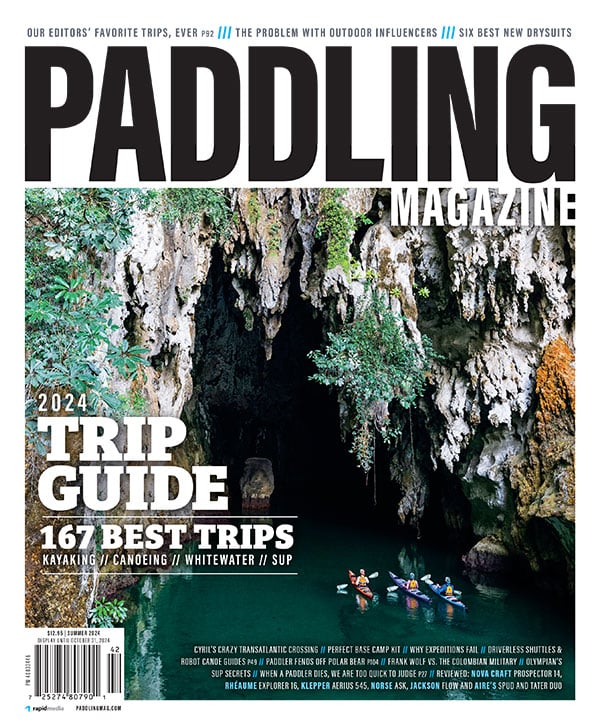 This article was first published in Issue 72 of Paddling Magazine.
This article was first published in Issue 72 of Paddling Magazine. 